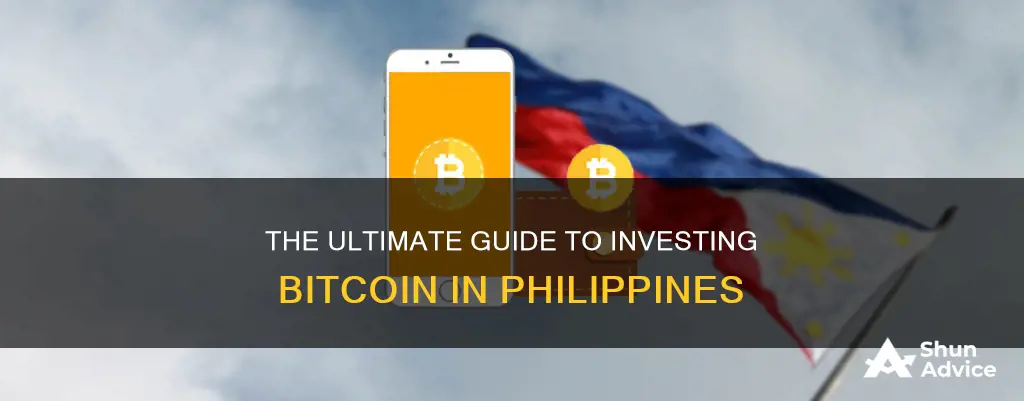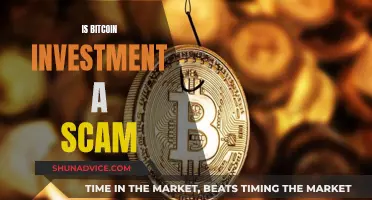
Bitcoin and other cryptocurrencies are regulated and legal to hold and trade in the Philippines. The Bangko Sentral ng Pilipinas (BSP) has issued statements explaining the possible risks associated with bitcoin trading and usage. The BSP also requires digital currency exchanges to maintain adequate safeguards to protect user funds and establish robust cybersecurity measures. The Securities and Exchange Commission (SEC) of the Philippines has guidelines for initial coin offerings (ICOs) and warns the public about the risks associated with investing in cryptocurrency due to its inherent price volatility.
There are several trusted online cryptocurrency exchanges operating in the Philippines, including Binance, Kraken, ByBit, and Changelly. These platforms allow users to buy, sell, and trade Bitcoin and other cryptocurrencies with Philippine pesos. It is important to do your own research and understand the risks involved before investing in Bitcoin or any other cryptocurrency.
| Characteristics | Values |
|---|---|
| Number of people investing in cryptocurrency in the Philippines | 4.13 million |
| Latest Statista report on cryptocurrency transaction volume in the Philippines | 7.2 million in 2020 |
| Cryptocurrency transaction legality in the Philippines | Legal |
| Cryptocurrency status as legal tender in the Philippines | Not considered legal tender |
| Cryptocurrency exchanges in the Philippines | Philippine Digital Asset Exchange (PDAX), Coins.ph, Juancash, Bexpress Pro, Binance, Kraken, ByBit, Changelly |
| Cryptocurrency wallet options | Ledger, Trezor, Exodus, Coinbase, Personal Desktop Wallets, Web Wallets, Mobile Wallets, Cold Wallets, Steel Wallets |
What You'll Learn

Choosing a legitimate exchange
When choosing a legitimate exchange to buy Bitcoin in the Philippines, it is important to consider factors such as security, fees, ease of use, and regulatory compliance. Here are some key points to help you make an informed decision:
- Regulatory Compliance: Ensure that the exchange is regulated by the Bangko Sentral ng Pilipinas (BSP), the financial body that oversees cryptocurrency exchanges in the Philippines. This ensures that the platform follows anti-money laundering and counter-terrorism financing policies and maintains adequate security measures to protect your funds.
- Security: Look for exchanges that implement robust security protocols, such as two-factor authentication, cold storage of funds, and regular security audits. For example, exchanges like Binance, Kraken, and ByBit are considered safe and secure options.
- Fees: Compare the trading fees, deposit fees, and withdrawal fees charged by different exchanges. Some exchanges offer lower fees, making them more cost-effective for buying Bitcoin.
- Payment Methods: Consider the payment options available on the exchange. Most exchanges accept bank transfers, credit/debit cards, and e-wallets. Choose an exchange that supports your preferred payment method.
- User Experience: Choose an exchange with a user-friendly interface, especially if you are a beginner. Some platforms offer educational resources, demo accounts, and 24/7 customer support to help you navigate the process.
- Cryptocurrency Options: If you plan to trade multiple cryptocurrencies, select an exchange that offers a wide range of coins and tokens. This will provide you with more options for investing and trading.
- Reputation: Research the reputation and track record of the exchange. Look for reviews and feedback from other users to gauge their level of satisfaction with the platform's security, fees, and customer support.
- Binance: Binance is the most popular exchange in the Philippines, offering a wide range of cryptocurrencies, low trading fees, and multiple payment options. It provides a secure platform with two-factor authentication and cold storage options.
- Kraken: Kraken is considered one of the safest Bitcoin exchanges globally, offering advanced security features and a wide range of trading options. It is user-friendly and supports multiple payment methods.
- ByBit: ByBit is known for its vast selection of cryptocurrencies, user-friendly interface, low fees, and liquidity. It provides secure offline storage of user funds and regularly publishes Proof of Reserves audits.
- Philippine Digital Asset Exchange (PDAX): PDAX is regulated by the Central Bank of the Philippines (BSP) and allows investors to trade popular coins like Bitcoin, Ethereum, and Ripple. It is available on both web and mobile platforms.
- Coins.ph: This exchange is also regulated by the BSP and allows users to trade cryptocurrencies like Bitcoin, Ethereum, and Axie Infinity Shards. It offers free trading and charges a minimal withdrawal fee.
- Changelly: Changelly is a locally registered exchange in the Philippines that accepts credit and debit card payments. It offers seamless transactions, advanced security features, and low fees.
Berkshire Hathaway's Take on Bitcoin Investments
You may want to see also

Understanding the legal environment
The legal environment surrounding Bitcoin in the Philippines is complex and evolving. Here are some key points to understand:
- The Bangko Sentral ng Pilipinas (BSP), the country's central bank, has issued guidelines for virtual currency exchanges, recognising that while virtual currencies are not legal tender, they are used for financial services such as remittances and payments.
- Cryptocurrency transactions are legal in the Philippines, but crypto coins are not considered 'legal tender' as they are not issued by the BSP.
- The BSP requires cryptocurrency exchanges to register with them and comply with anti-money laundering and counter-terrorism financing policies to ensure legal transactions.
- The BSP also mandates digital currency exchanges to implement robust cybersecurity measures and maintain adequate safeguards to protect user funds.
- The Securities and Exchange Commission (SEC) of the Philippines has issued guidelines for initial coin offerings (ICOs) and warns the public about the risks associated with investing in cryptocurrency due to its volatile nature.
- The BSP and SEC are actively discussing legislation and frameworks to regulate cryptocurrencies further.
- The BSP has awarded virtual currency exchange licenses to several companies, allowing them to convert Philippine Pesos to cryptocurrency and vice versa.
- Bitcoin companies in the Philippines have stricter Know Your Customer (KYC) requirements, meaning they collect detailed customer information.
- While the BSP does not endorse Bitcoin or any other digital currencies, it does not prohibit their use. Businesses and individuals are free to accept Bitcoin as a payment method, and freelancers can receive payment in Bitcoin.
MrBeast's Bitcoin Adventure: Did He Invest?
You may want to see also

Researching and understanding the risks
Volatile and Fluctuating Market
The Bitcoin market is highly volatile and unpredictable. The price of Bitcoin can fluctuate significantly in a short period, as evidenced by its historical price movements. There is no guarantee of a positive return on investment, and buyers need to be cautious and vigilant in monitoring the market. Small investments are generally recommended as they are more beneficial in the long run.
Cyber Attacks and Fraud
As a technology-dependent investment, Bitcoin is susceptible to cyber attacks and hacking attempts. The loss or theft of Bitcoins is often irreversible, and many buyers have reported losses on exchanges and mining ventures. Additionally, fraudulent exchanges and sellers can dupe unsuspecting investors out of their Bitcoins. It is crucial to research and use reliable cryptocurrency wallets and exchanges to mitigate these risks.
Limited Regulation and Taxation
The Bitcoin market currently operates with little to no major regulations from governments worldwide. The lack of a clear regulatory framework and taxation policies can lead to potential problems and uncertainties in the future. Cryptocurrencies are not widely accepted as legal tender, and their status as competition to government-issued currencies may lead to complications.
Technology Reliance and System Shutdowns
Bitcoin is entirely reliant on technology, and any disruptions or failures can impact its value and usage. Unlike traditional investments, Bitcoin has no physical collateral. System shutdowns, cyber threats, and online fraud can negatively affect Bitcoin owners.
Block Withholding and Central Authority
The process of creating new Bitcoins through "blocks" can be manipulated by mining pools, disadvantaging honest miners. Additionally, the lack of a central authority backing Bitcoin's value can lead to legal complications and difficulties in resolving transaction disputes.
Legal and Tax Considerations
The legal standing of cryptocurrency is still evolving, and investors need to stay updated with the latest government and tax authority pronouncements. In the US, for example, the IRS has defined cryptocurrencies as property, subjecting investors to capital gains tax laws. Failure to comply with tax requirements can result in severe penalties and criminal consequences.
Fraud, Money Laundering, and Digital Security
The decentralised nature of cryptocurrency has raised concerns about its potential for criminal activities such as fraud, money laundering, and other financial crimes. The lack of a central authority or standard practices to recover stolen funds further complicates the situation. Digital currency investors assume a certain level of risk, and while security measures are constantly improving, the legal risks associated with owning cryptocurrencies may never be fully eliminated.
Calculating Bitcoin ROI: A Step-by-Step Guide
You may want to see also

Selecting a crypto exchange or broker
When selecting a crypto exchange or broker, it is important to consider several factors to ensure a safe and seamless trading experience. Here are some key factors to keep in mind when choosing a crypto exchange or broker in the Philippines:
- Regulation and Security: The Bangko Sentral ng Pilipinas (BSP) is the financial body that regulates cryptocurrency exchanges in the Philippines. Ensure that your chosen exchange is licensed by the BSP and complies with Anti-Money Laundering/Combating the Financing of Terrorism (AML/CTF) regulations. Additionally, look for exchanges that prioritise security measures, such as two-factor authentication and cold storage of customer funds.
- Accessibility: Choose an exchange that is accessible in the Philippines and accepts Philippine pesos (PHP) as a payment method. Some exchanges may have restrictions based on your location, so it's important to verify their availability in your region.
- Fees: Different exchanges charge varying fees for transactions. Compare the fees of different platforms, including deposit, withdrawal, trading, and account maintenance fees, to find the most cost-effective option.
- Supported Coins: Not all exchanges offer the same range of cryptocurrencies. If you're interested in specific coins or tokens, ensure that the exchange you choose supports them. Some exchanges offer a wider variety of altcoins, while others may focus on more established coins.
- User Experience: Consider the user interface and ease of use of the exchange, especially if you're a beginner. Look for platforms that offer educational resources, demo accounts, and intuitive trading tools to help you navigate the crypto market with ease.
- Customer Support: Opt for exchanges that provide reliable and responsive customer support. The best exchanges offer 24/7 support through multiple channels, such as live chat, email, and phone, to assist you promptly with any queries or issues.
- Storage: Crypto exchanges offer different methods for storing your digital assets, such as online hot wallets or offline cold wallets. Choose an exchange that provides the storage option that best suits your needs and security preferences.
- Kraken: Kraken is a beginner-friendly platform with low fees, a wide range of crypto coins, and advanced trading features. It offers a user-friendly mobile app and a comprehensive educational platform.
- Binance: Binance is one of the largest crypto exchanges globally, offering a vast selection of cryptocurrencies. It provides low trading fees, staking opportunities, and fiat currency support, including PHP.
- Bybit: Bybit is a derivatives trading exchange offering up to 100x leverage on transactions. It supports PHP and multiple other currencies. Bybit provides advanced trading tools, a user-friendly interface, and excellent customer service.
- Coinbase: Coinbase is a well-known exchange that offers a large selection of cryptocurrencies, an intuitive user interface, and educational resources. However, it does not currently support PHP.
- OKX: OKX is a user-friendly exchange with low fees, high-interest staking opportunities, and a wide range of crypto coins. It supports PHP and various other payment methods.
- Philippine Digital Asset Exchange (PDAX): PDAX is a BSP-regulated exchange available on web and mobile platforms. It allows investors to trade popular coins like Bitcoin, Ethereum, and Ripple, and supports direct conversion to Philippine Peso (PHP).
- Coins.ph: This exchange allows users to trade cryptocurrencies with free trading and a low withdrawal fee of PHP 10. It is regulated by the BSP and supports popular coins like BTC and ETH.
A Smart Guide: Investing Your 401k in Bitcoin
You may want to see also

Safekeeping your cryptocurrencies
When you purchase Bitcoin, you are given two keys. One is your public key, which is used to encrypt information and serves as your wallet address. The other is a private key that allows you to decrypt the information and access your Bitcoin. This is the key you need to store and safeguard.
There are several ways to store your Bitcoin safely:
- Hardware wallets are physical devices that record the private key. They are considered one of the safest options as they can be kept offline and are not accessible via the internet. Examples include the Ledger Nano X and Trezor Model T, which are usually USB connection-type drives.
- Paper wallets are another option where you simply write down your private key on a piece of paper and store it in a safe place. This method is secure, but there is a risk of ink bleeding, paper deterioration, or loss.
- Metal wallets are similar to paper wallets, but they record the private key on a piece of metal.
- Desktop wallets are software programs that reside on your computer. They are not the safest option as they are vulnerable to cyber-attacks.
- Mobile wallets are hosted on a mobile device and are less secure than hardware wallets.
- Web-based wallets are hosted by a web service and are not recommended as you are allowing a third party to store your keys.
It is important to note that hot wallets are connected to the internet, while cold wallets are not. Hot wallets are more convenient but carry a higher risk of being hacked. Cold wallets, on the other hand, offer greater security but are less convenient as they need to be connected to a device to access your crypto.
When choosing a wallet, consider factors such as security, convenience, and cost. Additionally, always back up your Bitcoin wallet regularly and keep your software up to date to protect your crypto assets.
Short-Term Crypto Investments: Which Digital Coins to Pick?
You may want to see also
Frequently asked questions
First, find a legitimate and secure cryptocurrency exchange that operates in the Philippines, such as Binance, Kraken, ByBit, or Changelly. Then, create an account and complete the Know Your Customer (KYC) verification process, which will likely include providing a photo ID. Next, link your bank account or credit card to the exchange so you can fund your account. Finally, you can start buying Bitcoin and other cryptocurrencies.
Binance, Kraken, and ByBit are three of the most trusted and popular exchanges in the Philippines. Binance is considered safe and offers two-factor authentication and low trading fees. Kraken is also highly regarded for its security and is used by millions of active users. ByBit is user-friendly, has low fees, and is ideal for both novice and experienced traders.
Security, fees, user interface, and the range of supported cryptocurrencies are important factors to consider when selecting a crypto exchange. Ensure the platform has robust security measures like two-factor authentication and encryption. Compare fees across different platforms to find a competitive pricing structure. Choose an exchange with a user-friendly interface, especially if you're new to crypto trading. Also, check that the platform supports a wide range of cryptocurrencies, including the ones you're interested in.
You can store your Bitcoin in a digital wallet, and there are several types available. Hardware wallets, such as Keepkey, Ledger, and Trezor, are considered the safest option as they are not connected to the internet, making them less vulnerable to cyber-attacks. Software wallets, like Trust Wallet and Exodus, are another option but are generally less secure than hardware wallets. Exchange-provided wallets are convenient, but they are the least secure type as they are connected to the internet and give control of your private keys to a third party.
Cryptocurrencies like Bitcoin are highly volatile and carry significant risk. It's important to understand the market, conduct thorough research, and assess your risk tolerance before investing. Remember that cryptocurrencies are not regulated in the same way as traditional financial institutions, and incidents of hacks and thefts have occurred. Always use credible information sources and consider consulting a financial advisor before making any investment decisions.







